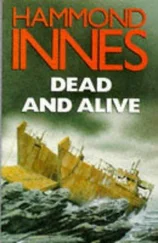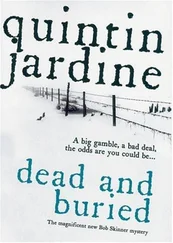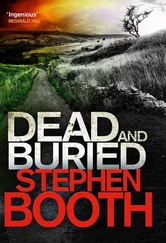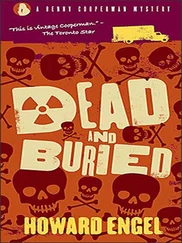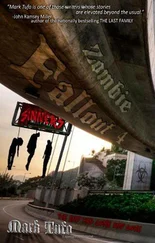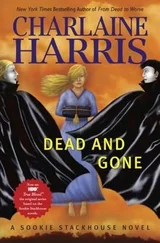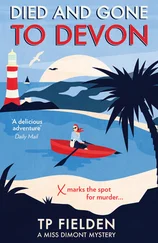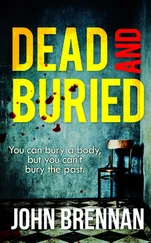Andrew Vachss - Dead and Gone
Здесь есть возможность читать онлайн «Andrew Vachss - Dead and Gone» весь текст электронной книги совершенно бесплатно (целиком полную версию без сокращений). В некоторых случаях можно слушать аудио, скачать через торрент в формате fb2 и присутствует краткое содержание. Жанр: Старинная литература, на английском языке. Описание произведения, (предисловие) а так же отзывы посетителей доступны на портале библиотеки ЛибКат.
- Название:Dead and Gone
- Автор:
- Жанр:
- Год:неизвестен
- ISBN:нет данных
- Рейтинг книги:5 / 5. Голосов: 1
-
Избранное:Добавить в избранное
- Отзывы:
-
Ваша оценка:
- 100
- 1
- 2
- 3
- 4
- 5
Dead and Gone: краткое содержание, описание и аннотация
Предлагаем к чтению аннотацию, описание, краткое содержание или предисловие (зависит от того, что написал сам автор книги «Dead and Gone»). Если вы не нашли необходимую информацию о книге — напишите в комментариях, мы постараемся отыскать её.
Dead and Gone — читать онлайн бесплатно полную книгу (весь текст) целиком
Ниже представлен текст книги, разбитый по страницам. Система сохранения места последней прочитанной страницы, позволяет с удобством читать онлайн бесплатно книгу «Dead and Gone», без необходимости каждый раз заново искать на чём Вы остановились. Поставьте закладку, и сможете в любой момент перейти на страницу, на которой закончили чтение.
Интервал:
Закладка:
“If there was no danger to you, you would not be seeking them?”
“No.”
She regarded me soberly, despite a mouth surrounded by powdered sugar. I felt like I was cocaine on her scale: telling her I weighed a kilo while her readout said two pounds.
“It cannot be as you say. Not only as you say.”
“Why?”
“You are in a rage. A cold, black rage. When we talked … before … you told me you understood the fear. I believe that is true. But you are being hunted, yes? You were almost killed, and by people you do not know. Where is your fear now, Mr. Burke?”
“It’s there, I promise you.”
“Is it? Whoever your enemies are, you could hide from them. But what you want is their blood.”
“Why would you say—?”
“Revenge is only for small things,” she said, her voice a thin strand of white-hot wire. “For my country, for my people, there can be no revenge.”
“So you forgive the Khmer Rouge?”
“So you mock me? What do you know of our … suffering?” she said, something deeper than anger in her tone. I figured she never finished the first time she talked about it, so I just shut up and listened. “What revenge could you imagine for such a scale of evil?” she went on. “Could there be revenge for what Hitler did to the Jews? Or Stalin to his people? For Idi Amin? In Cambodia, it was not one tribe against another. It was not Rwanda. Or Bosnia. Or Northern Ireland. It was not even the ‘class struggle’ so beloved of Marxists, although Pol Pot claimed to be one. What happened was that the monster was set free. The monster in men that kills, and tortures, and rapes for … for the pure evil joy of it. Revenge? For true revenge, we would have to kill the Devil.”
“There is no Devil. There is no ‘evil’ that gets loose. It’s all inside humans. Some humans. And it’s those humans who have to pay.”
“Which humans? The ten-year-old boy who bashed in babies’ skulls with a shovel because his leaders told him the babies were the seeds of the privileged class? The people who made moral decisions not to kill died for their choice. Would you cleanse all Cambodia to be certain none of the guilty escaped?”
“No. But they can be found if only—”
“Found? Perhaps. Some of them. Some few of them. But even South Africa has a Truth and Reconciliation Commission. They are trying to heal their country, not exterminate all those who committed atrocities. Rwanda is going to have trials. They will take decades , and only a handful of people will be punished. Only zealots want revenge. Most people, what they want is food. They want safety. And they want a future. Revenge will provide none of that.”
“That’s their choice.”
“But not yours.”
“Not mine.”
“People have hurt you. In your life, yes?”
“Yes.”
“Were you always able to have your revenge?”
“No. Some of them … I could never find them. Others died before I could.”
“But you still hate?”
“I don’t think I do. I don’t hate the dead—I hate what they did.”
“So … now? Why do you hate now?”
“Could you come here?” I asked her.
She walked slowly over to where I was sitting, turned her back, cocked one hip, and perched on the arm of the chair.
“I want to tell you something,” I said.
It took a long time to tell her. I didn’t start out to do that—just wanted to explain how Pansy had died, loyal past death. But I kept going backwards, all the way to when Pansy was a pup. How you were supposed to wrap an old alarm clock in a towel and let the puppy sleep next to it—it would sound like a heartbeat from her mother, and comfort her. I let her sleep on my own heart instead.
When I stopped talking, she stayed quiet. I could barely see her in the darkness that had dropped like a lazy curtain.
“Who pays?” she whispered.
“Whoever was there. Whoever sent them.”
“And then you are finished?”
“Yes.”
“I do not believe you,” is all she replied.
The next morning, she was gone, the door to her room standing open. I was up by five-thirty, so she must have taken off when it was pitch-dark outside. I flicked on the light in the hall. It threw off enough to show me that her suitcase was still there. The living room held no note. Her laptop was missing.
I showered and shaved, aimless, taking my time. Went out and ate a slow breakfast: a toasted bagel with cream cheese and pineapple juice. The cream cheese had little bits of chive, sharp and clean. The juice tasted like they’d just taken a machete to a fresh batch of pineapples that morning. But the bagel was a flop—mealy, flabby, and with no real crust. I guess what they say is true.
I found an OTB a few blocks from the hotel. But even though it took plays on out-of-town tracks, all the action was on thoroughbreds or the dogs. I only bet the trotters. And I fucking hate greyhound racing—I know what happens to the dogs as soon as they lose a step or two.
Back to learning the streets. I spotted a poolroom, but shrugged off the temptation—the fewer people who got a close-up of me before the meet, the better. Traffic was often clogged, especially where they were building a trolley line through town, but the drivers seemed either resigned to it or more polite than I believed people in cities could get.
By midday, I’d found a giant Borders on Southwest Third. Turned out the place took up the whole corner. I saw more gorgeous women in their coffee shop than you’d see in an L.A. restaurant. But these girls were all reading books, not waiting on tables, so I never talked to any of them.
I just strolled, looking around. I kept seeing signs that said Portland was the “Rose City,” but I didn’t see any roses.
After a whole day, I decided that the Northwest sector looked most like places I was used to operating in. And that the Horse was loose in Portland’s streets, riding a lot of young kids, its weight too much for them to carry. I knew the end of that script.
Gem didn’t come back that night. I watched television until narcolepsy set in. Didn’t take long.
On waiting-day number three, it rained. I continued my learning on foot, London-cabdriver-style, getting the nuances I’d miss behind the wheel. Couldn’t cover a lot of ground, but whatever I covered, I covered tight, working my way around and behind O’Bryant Square.
It was one block square: ground-level at one end, full-width terraced at the other, the steps perfect for sitting. No fences or gates, so it had easy access to all four of the streets that made up its borders.
I never found it empty, no matter what time I went past. Homeless nomads with clear plastic sacks of recyclables they’d rescued from the trash, students with their backpacks and attitudes, burnt-out runaways. A guy in a business suit was meeting a woman who couldn’t have been his wife from the way he kept eye-sweeping for anybody he might know, a young girl was drawing something in a large tablet, two men in their thirties openly shared a joint. And pigeons. Plenty of pigeons.
When I got back, Gem was there, perched on the arm of the easy chair like she’d been when I told her about Pansy. She didn’t turn around when I came in.
“Why don’t you sit in the chair?” I asked her.
“I was saving it for you,” she said, almost formally.
“Thank you,” I replied, in the same tone.
I sat down.
“Do you want something to eat?” I asked her.
She flashed a smile, nodded her head.
“Anything in particular?”
“No. Just—”
“—a lot, right?”
“Yes.”
It was the first time I’d tried room service since I’d been at the hotel. No risk, as I saw it. A hotshot studio exec like me, who’d look twice at an exotic dinner companion in his room? I ordered as if there were three people eating, and came up only a little short … which I cured when I told Gem I didn’t want my dessert.
Читать дальшеИнтервал:
Закладка:
Похожие книги на «Dead and Gone»
Представляем Вашему вниманию похожие книги на «Dead and Gone» списком для выбора. Мы отобрали схожую по названию и смыслу литературу в надежде предоставить читателям больше вариантов отыскать новые, интересные, ещё непрочитанные произведения.
Обсуждение, отзывы о книге «Dead and Gone» и просто собственные мнения читателей. Оставьте ваши комментарии, напишите, что Вы думаете о произведении, его смысле или главных героях. Укажите что конкретно понравилось, а что нет, и почему Вы так считаете.

